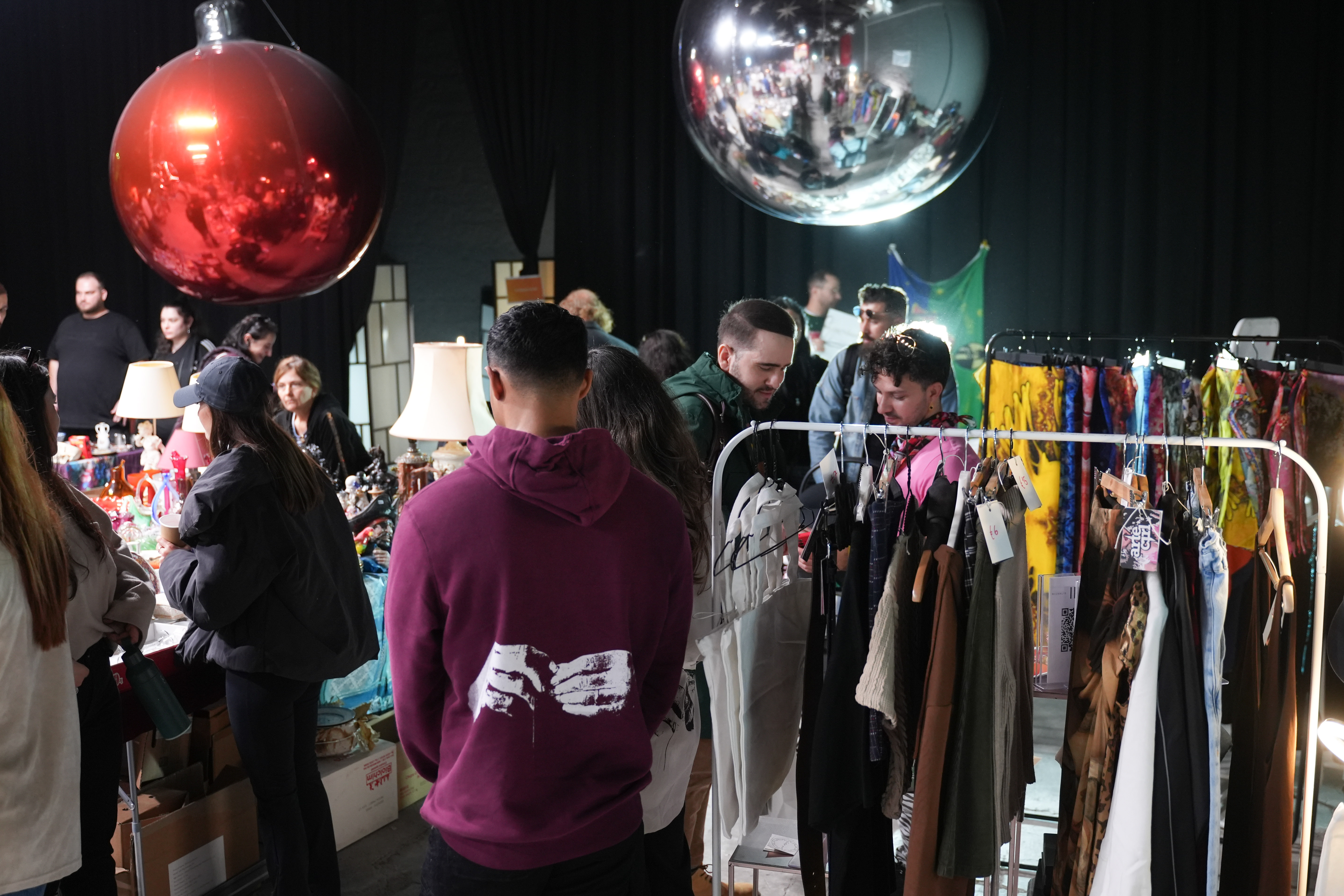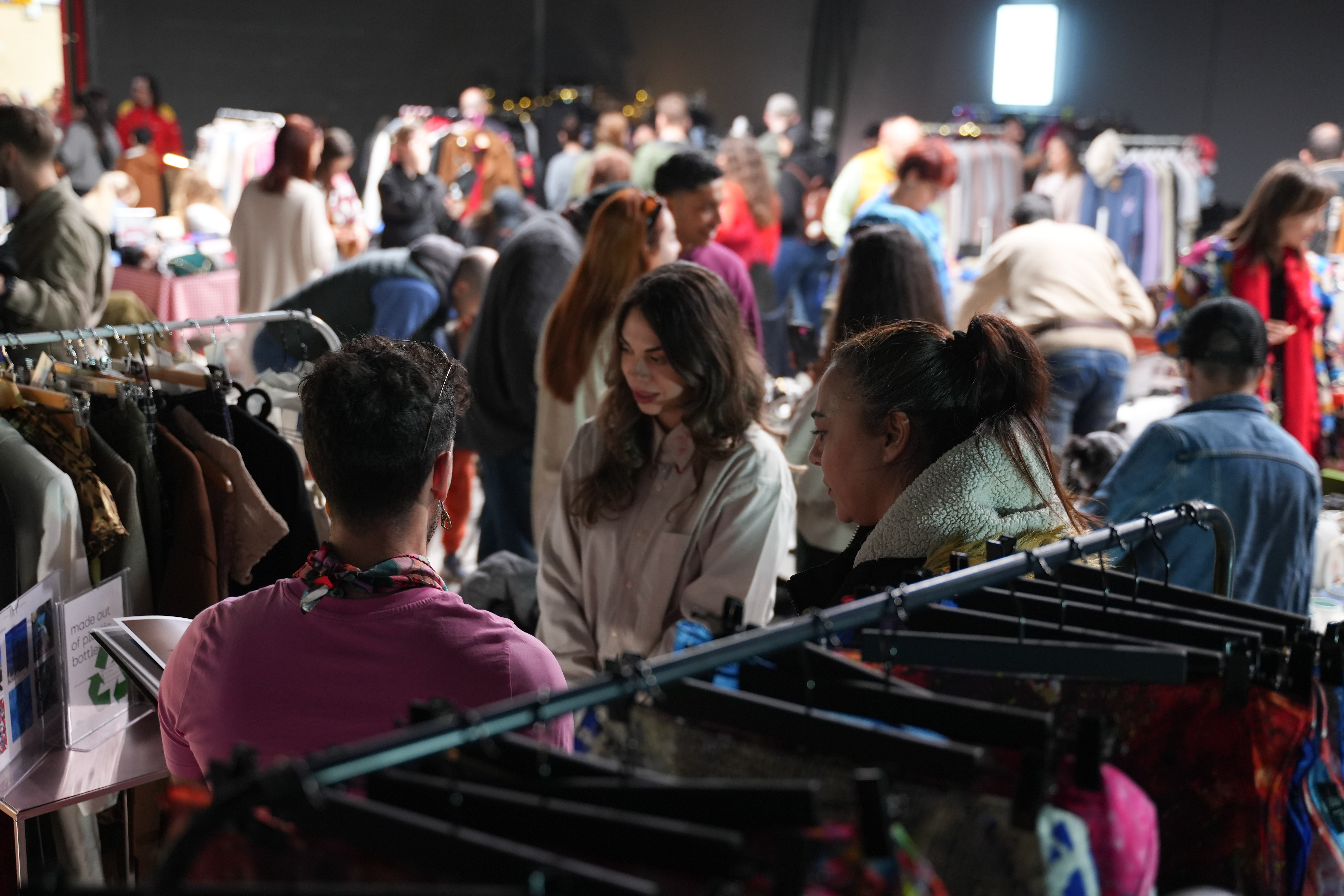By Maria Savvides
Every year, on the last Friday of November, the Christmas shopping season kicks off with what has become known as Black Friday, a day of supposedly big discounts and promotions to boost retail sales. This shopping frenzy generates billions in profit annually, as stores seek to push remaining stock before Christmas. What began in the 1950s in the US and was established by the 1980s as a single-day event has now expanded on a global scale and evolved into a four-day event, including discounts over the weekend and Monday, also known as Cyber Monday.
The environmental impact of Black Friday
While we get spammed by shops to participate in the shopping craze and our serotonin levels rise to give a momentary feel-good sentiment over the heavily discounted purchases, what we are often not told is the environmental impact behind it: from the vast mountains of waste produced following the event, to unsustainable packaging, increase in deliveries and CO2 emissions and a spike in energy consumption.
For Cyprus, a small, resource-sensitive island, the above has severe consequences.
Black Friday’s primary harm is rooted in encouraging the purchase of mostly unnecessary goods. This pressure for impulse purchases translates directly into waste: 72 per cent of consumers admit to making unplanned purchases during a sale, and critically, almost 60 per cent later regretted buying an item. So, many of the things people buy on Black Friday end up barely used and quickly thrown away.
This means resources are wasted at every step: from making and shipping the products to managing the waste they create. All this extra Black Friday trash exacerbates Cyprus’s already serious waste problem. In 2022, the island generated 673 kg of municipal waste per person, significantly higher than the EU-27 average of approximately 513 kg.
Fast fashion
The fast fashion industry, heavily promoted during sales, is a major contributor, identified as one of the most catastrophic habits of the modern world. In 2024, fashion and apparel accounted for a substantial 32 per cent of e-commerce revenue in Cyprus. This fuels a massive textile waste problem, with Cyprus historically noted for producing the highest amount of textile waste per capita in Europe, estimated at 29.3 kg/person. Despite this volume, the capture rate for recycling or reuse is tragically low, standing at only 9 per cent of the material stream.
Plastic packaging
Regarding plastic, while Cyprus reports a high overall packaging recycling rate of 70 per cent in 2022, this figure is complicated because a significant proportion of its sorted waste is exported without clear information on how much is actually recycled in destination countries[1]. Furthermore, Cyprus is designated an “enforcement laggard” concerning the EU’s Single-Use Plastic (SUP) Directive, allowing the continued flow of cheap, disposable plastics central to high-volume retail.
Increase in deliveries and energy consumption
Online shopping is convenient but comes at a cost.
With e-commerce in Cyprus projected to reach approximately €1 billion by 2025, global shipping and local deliveries contribute significantly to emissions. Transport already accounts for 42 per cent of the island’s final energy use, worsened by high car ownership (over 600 per 1,000 people) and a growing delivery fleet. This contributes to a broader climate concern: in early 2025, Cyprus experienced an 8.3 per cent rise in greenhouse gas emissions, the third-highest in the EU, putting the country off track for its 2030 reduction targets.
Steps we can take for this year’s Black Friday
We can go on and on about the environmental impact, but the question that persists is, what can we do differently this year? So here are some ideas:
- Consume mindfully: Before buying, consciously take a step back and practice saying “no” to impulse purchases. This addresses the core issue of overconsumption by introducing a necessary pause that combats advertising pressure and emotional buying.
- Support second hand: Look for pre-owned or refurbished alternatives before considering a new product. Choosing second-hand fundamentally avoids the environmental impact of new production and diverts items from landfill.
- Choose sustainable brands: Prioritise retailers that transparently commit to eco-friendly production and ethical labour. This redirects consumer spending power, rewarding businesses that already operate with a lower environmental and social footprint.
- Avoid packaging: Carry and use your own reusable shopping bags and containers for all purchases. While a small step, reducing single-use plastic and paper waste helps minimise resource depletion and landfill volume associated with the shopping trip itself.
- Green is the new black: In 2015, Green Friday was introduced, a movement opposing unhinged overconsumption promoted by Black Friday. This seeks to redefine the event by encouraging repair of existing products or spending that actively gives back to the planet or community, shifting the focus from profit to purpose.
- Support organisations that advocate for policy change, like the Zero Waste Alliance Cyprus: Demand the enforcement of the SUP Directive in Cyprus, as well as the full implementation of the National Waste Prevention Plan (NWPP 2024-2030), which targets textiles, plastic, and electrical waste to push Cyprus toward the “Zero Waste to Landfill” strategy.
Photos from ZWAC participation at the Kolla – Cyberness Market event with second-hand market (Limassol, 22/12/2024)
While the rising cost of living makes taking advantage of Black Friday deals tempting, the current climate crisis demands a critical shift away from promoting peak consumerism.
It is within our power to redefine Black Friday so that it is no longer synonymous with a negative environmental impact. We can create a positive change that promotes sustainability by reflecting on our consumption habits.

Steps we can take for this year’s Black Friday
We can go on and on about the environmental impact, but the question that persists is, what can we do differently this year? So here are some ideas:
- Consume mindfully: Before buying, consciously take a step back and practice saying “no” to impulse purchases. This addresses the core issue of overconsumption by introducing a necessary pause that combats advertising pressure and emotional buying.
- Support second hand: Look for pre-owned or refurbished alternatives before considering a new product. Choosing second-hand fundamentally avoids the environmental impact of new production and diverts items from landfill.
- Choose sustainable brands: Prioritise retailers that transparently commit to eco-friendly production and ethical labour. This redirects consumer spending power, rewarding businesses that already operate with a lower environmental and social footprint.
- Avoid packaging: Carry and use your own reusable shopping bags and containers for all purchases. While a small step, reducing single-use plastic and paper waste helps minimise resource depletion and landfill volume associated with the shopping trip itself.
- Green is the new black: In 2015, Green Friday was introduced, a movement opposing unhinged overconsumption promoted by Black Friday. This seeks to redefine the event by encouraging repair of existing products or spending that actively gives back to the planet or community, shifting the focus from profit to purpose.
- Support organisations that advocate for policy change, like the Zero Waste Alliance Cyprus: Demand the enforcement of the SUP Directive in Cyprus, as well as the full implementation of the National Waste Prevention Plan (NWPP 2024-2030), which targets textiles, plastic, and electrical waste to push Cyprus toward the “Zero Waste to Landfill” strategy.
While the rising cost of living makes taking advantage of Black Friday deals tempting, the current climate crisis demands a critical shift away from promoting peak consumerism.
It is within our power to redefine Black Friday so that it is no longer synonymous with a negative environmental impact. We can create a positive change that promotes sustainability by reflecting on our consumption habits.
Maria Savvides, Projects Officer at Friends of the Earth (FoE) Cyprus and Co-coordinator of the Zero Waste Alliance Cyprus (ZWAC)






Click here to change your cookie preferences